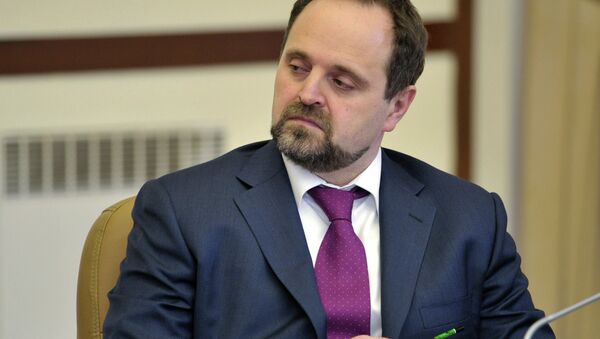MOSCOW, August 20 (RIA Novosti) - Mongolia is focusing on reestablishing ties with China and Russia in light of the country’s weakest economic growth in four years, Bloomberg reported Wednesday.
“Both China and Russia are keenly interested in Mongolia’s resources, and both know that the country is going through a rough economic patch,” Peter Morrow, partner at NovaTerra LLC, which advises on projects including energy, was quoted as saying by Bloomberg from Ulaanbaatar.
The World Bank claimed Mongolia’s economy to be experiencing an adjustment period responding to the country’s large external and internal imbalances.
Mongolian foreign investment is expected to plummet 58 percent year-on-year to $1.32 billion, while inflation is set to rise 14.9 percent and the value of the Mongolian tugrik to hit a record low, decreasing in value by 16 percent.
“Russia has the ability to re-engage Mongolia economically very quickly,” Nick Cousyn, chief operating officer of Ulaanbaatar-based brokerage BDSec, said. “China on the other hand, can bring investment to Mongolia on a scale unequaled globally,” he added.
Chinese President Xi Jinping is expected to visit Mongolia on Thursday, in hopes of benefitting from Mongolia’s vast resources as well as use the country as an alternative to burning its own coal.
On August 14 the Mongolian government issued a prime minister’s decree authorizing an official to sign an agreement between Mongolia and China that would contribute to a continuous strategic partnership and sustainable development between the nations. Xi is expected to sign the agreement during his visit.
Russian Natural Resources and Environment Minister Sergei Donskoy reported Russia plans to sign off important documents that would increase bilateral cooperation during President Vladimir Putin’s visit to Mongolia on September 3. Bilateral trade as well as a medium-term program of cooperation between the two countries will be discussed.
The World Bank predicts Mongolia to continue experiencing double-digit inflation for the remainder of 2014 amid expanded domestic credit and currency depreciation.


